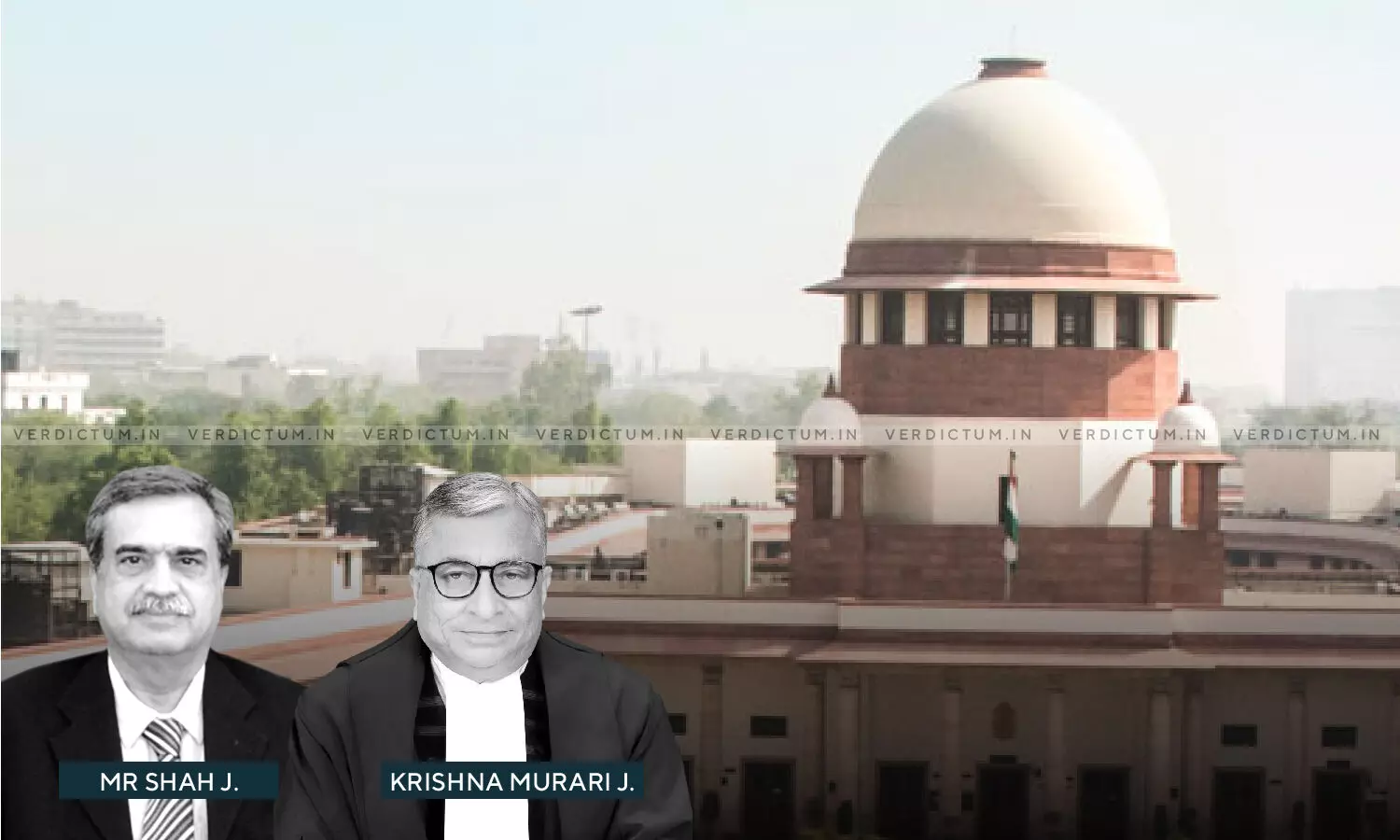
Once Order Of Termination Is Proved By Industrial Tribunal Thereafter It Cannot Be Challenged By Fresh Reference- SC
 |
|The Supreme Court has observed that once an order of termination is proved by the industrial tribunal, thereafter a fresh reference under Section 10 of the Industrial Disputes Act challenging the order of termination is not permissible.
The Bench of Justice MR Shah and Justice Krishna Murari observed –
"…once the order of termination was approved by the Industrial Tribunal and the management was permitted to lead the evidence and prove the misconduct before the Court and thereafter on appreciation of evidence the order of termination was approved, thereafter the fresh reference under Section 10 of the I.D. Act challenging the order of termination was not permissible."
In this case, a workman was serving on the post of Conductor. A departmental enquiry was initiated against him alleging not issuing the tickets to 10 passengers though he collected the amount of tickets. In the department inquiry he was found guilty for the misconduct alleged.
The employer Rajasthan State Road Transport Corporation terminated his services w.e.f. July 31, 2001.
The Tribunal had held the enquiry bad however, allowed the Appellant to prove the charges before the Tribunal. Both the parties led the evidence before the Tribunal on the charges alleged. The Appellants led, both, oral as well as documentary evidences. That on appreciation of entire evidence on record and considering the submissions made on behalf of both the parties, the Industrial Tribunal vide order dated July 1st 2015 allowed the application under Section 33(2)(b) of the I.D. Act and granted the approval of the order of termination.
After a period of 19 years from the date of passing of the order of termination, the workman again raised the Industrial Dispute challenging the order of termination of 2001.
The Labour Court allowed the said reference and set aside the order of termination which came to be confirmed by the High Court.
Aggrieved, the Appellant approached the Apex Court.
Counsel Sachin Mittal appeared for the Appellant while Counsel Rishi Matoliya appeared for the Respondent before the Court.
The Supreme Court noted, "It is required to be noted that the order dated 21.07.2015 passed by the Industrial Tribunal which as such is a higher forum than the Labour Court had attained the finality. Though the aforesaid fact was pointed out before the High Court, the High Court has not at all considered and/or appreciated the same and has confirmed the judgment and award passed by the Labour Court for setting aside the order of termination which as such was approved by the Industrial Tribunal."
The Court held that once the order of termination was approved by the Industrial Tribunal on appreciation of evidence before it, thereafter the findings recorded by the Tribunal were binding between the parties.
The Court further observed that no contrary view could have been taken by the Labour Court contrary to the findings recorded by the Industrial Tribunal.
Thus, the Court held that the High Court committed a very serious error in dismissing the writ petition and confirming the award of the Labour Court setting aside the order of termination.
Accordingly, the Court set aside the impugned order of the High Court and allowed the appeal.
Cause Title - Rajasthan State Road Transport Corporation v. Bharat Singh Jhala (Dead) Son of Shri Nathu Singh, through Legal Heirs & Anr.